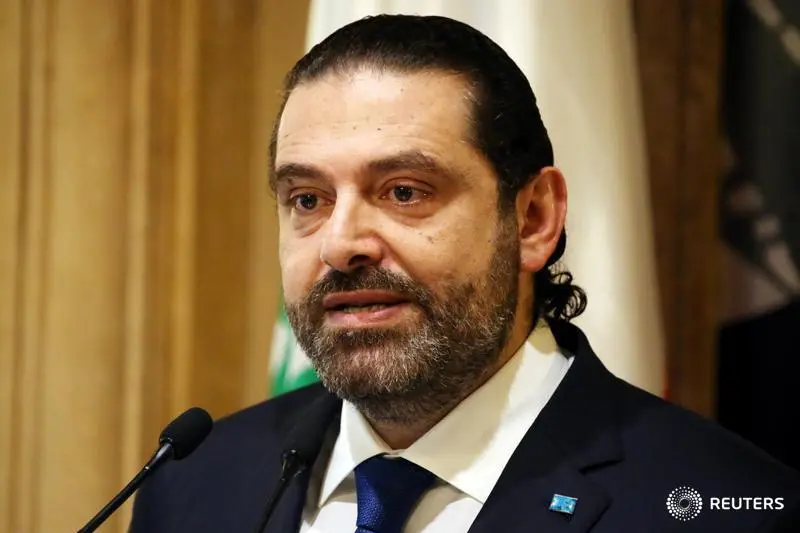PHOTO
BEIRUT: Divided at home over its approach to the Syrian refugee crisis, Lebanon will attend a conference Tuesday in Brussels to call on the international community to push for refugee returns and support local host communities. Prime Minister Saad Hariri will head the Lebanese delegation to the third Brussels Conference on Supporting the Future of Syria and the Region, accompanied by the education and social affairs ministers.
Hariri is set to arrive Wednesday, a source close to the premier told The Daily Star. The first two days of the conference will be devoted to dialogue involving more than 1,000 participants from regional civil society groups, officials and donor states. They will discuss key themes affecting the Syrian people and the international response to the crisis, a statement on the European Councils website said.
This will be followed Thursday by a meeting of foreign ministers and top officials for political discussions on the Syria crisis, after which funding pledges will be announced.
The conference could take on a more political tone this year. Federica Mogherini, the EUs top diplomat, said she had spoken with U.N. special envoy for Syria Geir Pedersen on how to use this conference not only for a humanitarian pledge ... but also for defining how we can support a political transition in Syria and the U.N. role in this respect.
The conference has also dragged Lebanese parties tug of war over the nature of the countrys relations with Syria back into the spotlight.
Pro-Damascus Minister of State for Refugee Affairs Saleh Gharib had not been included in the Lebanese delegation, despite holding a portfolio directly concerned with the issue.
The last politician to occupy the post, Mouin Merehbi, attended last years conference. Merehbi is a member of Hariris Future Movement and a fierce critic of Syrian President Bashar Assads regime.
Gharib Sunday said the role of the minister of state for refugee affairs has been short-circuited at the Brussels conference.
He was supported by other allies of the Syrian regime in Lebanon, including Minister of State for Foreign Trade Hasan Mrad, and Minister of State for Presidency Affairs Salim Jreissati.
The latest to weigh in Monday was Agriculture Minister Hasan Lakkis, who lamented Gharibs exclusion from the delegation. He said Lebanon should unite around the issue of refugee returns and there should be no outbidding on this issue. Lakkis was speaking ahead of a trip he had planned to Damascus to discuss crop exports to Syria, a move likely to cause tension around the Cabinet table.
Lakkis said the trip did not require prior Cabinet approval due to its technical nature.
Hariris decision not to include Gharib in the official delegation contrasted with his decision to hand the file over to one of the regimes closest allies in Lebanon.
Social Affairs Minister Richard Kouyoumjian told The Daily Star that he didnt know why Hariri had excluded Gharib, but he said his portfolio and the Education Ministry were directly concerned with the conference subjects.
He also said that the EU, which organized the conference, had invited him and Education Minister Akram Chehayeb directly, and that it had potentially not extended an invitation to Gharib.
In a statement to The Daily Star, the EU delegation to Lebanon clarified that Hariri and Foreign Minister Gebran Bassil had received invitations. In addition, two ministers from Jordan, Turkey and Lebanon are invited to participate in panels at the Day of Dialogue with civil society which takes place on 12-13 March, with Kouyoumjian and Chehayeb representing Lebanon in the forum, the statement read.
It is up to the government to decide upon the members of the delegation attending the conference, it added.
Kouyoumjian said Lebanon was attending Brussels this year with two main demands: more than $1 billion in support for Lebanese host communities, and increased pressure on Syria to facilitate the return of its nationals.
I believe the Syrian regime doesnt want them back, so we need more international pressure on them, Kouyoumjian said.
At the same time, my priority is the Lebanese host communities, because the refugee crisis has caused huge repercussions on Lebanese society, including social tensions, and on infrastructure and power, he added. Former Energy Minister Cesar Abi Khalil had said last year that Syrian refugees consumed what equated to about five extra hours of power per day.
Ahead of the official Lebanese delegations arrival Tuesday, dozens of local civil society members and academics had already made their way to Brussels. They initiated discussions Monday with members of other regional organizations and European Union officials.
Nasser Yassin, director of research at the Issam Fares Institute for Public Policy and International Affairs at the American University of Beirut, told The Daily Star via telephone from Brussels that EU officials had called on Lebanon to pull itself together on commitments made the year before.
So far the discussions with some key officials in the EU have shown that the Lebanese government needs to respect commitments to reform, whether in Brussels last year on commitments to protect refugees, or at CEDRE to start the reform drive, Yassin said.
He said the civil society delegation would be looking to pressure both donor nations and the official Lebanese delegation. Its a rare moment where we can engage with the Lebanese government and the international community, and we have demands for both.
Copyright 2019, The Daily Star. All rights reserved. Provided by SyndiGate Media Inc. (Syndigate.info).





















